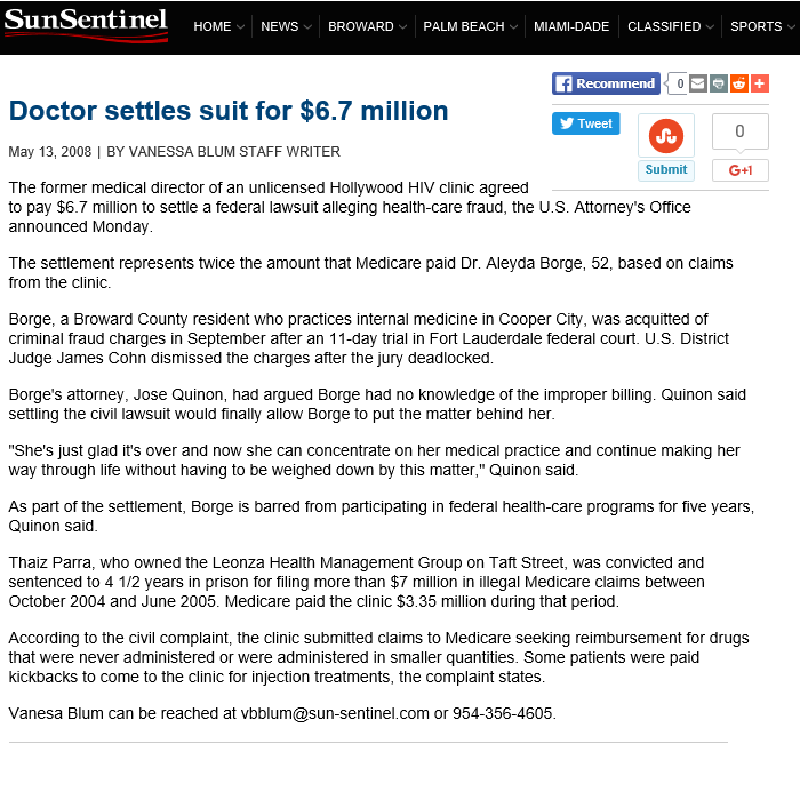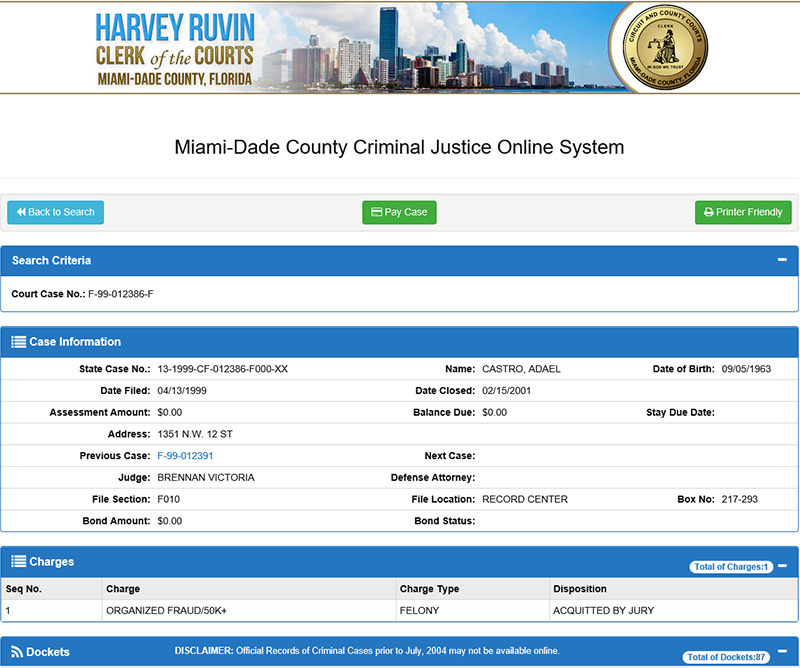Criminal Defense of Health Care Fraud
South Florida - Targeted by the Medicare Fraud Strike Force
The Governmental Accountability Office estimates that the Department for Health and Human Service’s Centers to Medicare and Medicaid Services (“CMS”) paid out nearly $60 billion in improper payments in 2014. This issue has drawn has drawn media attention and prompted the creation of a special task force.The HEAT Task Force - Health Care Fraud Prevention and Enforcement Action Team is based out of Miami.
Operators and managers of medical centers, assisted living facilities, home health agencies, pharmacies, or any entity engaged in billing CMS or private insurers must be cautious. Many honest doctors, medical professionals, and medical equipment providers may face severe penalties from honest mistakes that suddenly turn into a criminal investigation.
If you suspect that you are under investigation, have received a target letter, have been interviewed by government agents, or been indicted for any form of health care fraud, it is imperative that you contact an attorney to be protected and informed of your rights. The professionals at Jose M. Quiñon, P.A., have extensive experience in representing clients against charges or health care fraud. Contact us today to set up your consultation.
Medicare Part A & Home Health Agency (“HHAs”) Fraud or Assisted Living Facility (“ALFs”) Fraud
A home health agency is an organization that provides health care services for illness, injury, or therapy at a patient’s home. Learn more at Medicare.gov Home health care is commenced by a doctor’s order and will include a plan of care tailored to the patient.
Assisted living facilities are long-term care providers that can provide everything from lodging to therapy and medical supervision. Learn more here.
Services rendered by both home health agencies and assisted living facilities are covered by Medicare Part A.
Many cases of HHA or ALF fraud are related to billing mistakes or difficulties that medical professionals have when treating patients. These errors may be mistaken for fraudulent activity. As efforts to uncover and prosecute home health care fraud have increased in the last few years, investigators often make assumptions that lead to allegations of fraud.
Allegations of HHA or ALF fraud can include:
• Tests and services that are not medically necessary, were not prescribed or were not preformed
• False lab results or fabricated patient information
• Unnecessary medical services or procedures
• Services not outlined within the plan of care
• Unauthorized or unlicensed personnel performing services or signing off on services rendered
• Falsified prescriptions
• The use of patient recruiters
• Kickbacks or self-referrals
• Money laundering
Medicare Part B & Durable Medical Equipment Fraud
When a patient seeks medical treatment for an injury or illness, a doctor or other medical professional may legitimately prescribe equipment or supplies to treat that condition, including oxygen tanks, nebulizers, catheters, wheelchairs, among many others. A durable medical equipment company will often supply that equipment unless it is already on hand at the clinic, hospital or other medical office. The DME supplier will bill Medicare Part B or the insurer and will receive payment for any prescribed equipment or supplies. Learn more at Medicare.gov.
DME fraud can occur in a variety of ways, including:
• Billing for more equipment than was received by the patient
• Overbilling for medical equipment and supplies
• Altering or fabricating wholesale invoices
• Fake letters of medical necessity
• Medical equipment prescribed to fictitious people and billed to insurance companies
Medicare Part D & Pharmacies
Medicare Part D covers all or some of the costs of prescription medications for covered patients. Recently, Medicare Part D and pharmacies have come under increasing scrutiny by state and federal investigations. In June of 2015, federal agents arrested 243 people who allegedly billed CMS for over $712 million in false or fraudulent claims.
Part D or “pharmacy fraud” can occur in a variety of ways, including:
• Billing for prescriptions that are not medically necessary, were not prescribed or were never filled
• Using patient recruiters
• Maintaining insufficient inventory to cover filed claims
• Kickbacks
Jose M. Quiñon, P.A., has extensive experience in successfully representing clients against health care fraud charges of all kind. If you are the subject of an investigation involving Healthcare Fraud or have been charged with Healthcare Fraud, contact Jose Quiñon, P.A. for a consultation. (305) 858-5700


